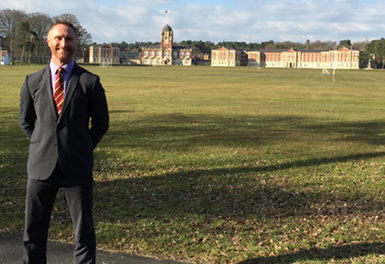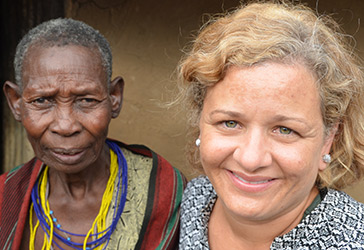The research interests of our doctoral students are diverse and they collect data in a variety of settings. The insights and experience gained make fieldwork a memorable part of the doctoral programme. Doctoral students can apply for funding to assist with the costs of their fieldwork. Awards are capped at £2,500 and only cover expenses over and above those which would normally be incurred in Cambridge.

Jaason
My PhD research focuses on optimal leadership development for professionals. The fieldwork I am undertaking involves investigating two leadership development programmes in detail: the Senior Leadership Course run by the NHS Staff College for senior NHS doctors and the second for senior military officers at the Defence Academy (Joint Service Command and Staff College). The work involves investigating the design and delivery each programme, including the educational/developmental objectives, the content, the pedagogical components (e.g. lectures, simulations), and how the programme and the participants' post-programme performance are measured. In addition to observing aspects of the programmes as they happen, questionnaires and follow-up interviews will be conducted with those who have completed the course. These are designed to ascertain participants' perceptions of effectiveness of every aspect of the programmes, as well as which indicators of performance outcomes they can identify following the programme.The goal is threefold: To identify 1) Principles of optimal leadership development in these two domains, 2) Effective ways of measuring performance following leadership development programmes at the individual, organisational, clinical, and economic level, 3) Which principles appear to be generic (universally-applicable), and which appear to be contextual (specific to a certain domain or context). This fieldwork will be complemented by a survey with Subject Matter Experts (SME's) in the leadership domains of healthcare, the military, and business. This measure is intended to broaden the understanding of the phenomenon of leadership development for professionals beyond the in-depth analysis of the two aforementioned cases.

Jacqueline
My fieldwork has taken me to the Karamoja region of Uganda for this entire year. Whilst living in a Catholic founded secondary school for girls, I am researching how secondary school female candidates, the majority of whom are first generation students in their families, can effectively and holistically prepare in their last year of secondary education for a life beyond it – be it back to their remote villages into traditional marriage, tertiary education, or religious life.
This ethnographic study utilises Nussbaum’s Capability Approach to understand how girls from a pastoralist society where only 1% of girls complete upper secondary school, can best develop capabilities to attain ‘a life worth living’ and well-being. I spend my days in school interviewing students and staff, and facilitating group discussions and journal writing with students to explore their impending transition in social, cultural, and religious aspects in relation to their future aspirations. Outside school, I interview family members, church leaders, stakeholders from non-governmental organisations, and non-formerly educated women from their communities. I explore the social, cultural, and religious implications and perspectives of girl child education in an historically marginalised cultural community.

Nigel
Whilst working with Professor David MacDougall, a social anthropologist filmmaker in Australian National University, Canberra, I was given the opportunity to test out some of the detail of the research methods I was learning about in a large all boys catholic secondary school. The art teacher had organised a graffiti workshop for Year 10 pupils. A well-known Australian artist worked in the school with the class for a day. With his support, the pupils made large (several metres long) graffiti inspired murals commemorating Australian solders involvement in World War 1.I was able to practice a number of specific observational filmmaking techniques. I was also able to help pupils film the workshop from their perspective.
It was a wonderful insight into: the cultural experience of these Australian 15 year-olds; their response to a demanding artistic challenge; and the power of observational filmmaking to examine aesthetic experience!
